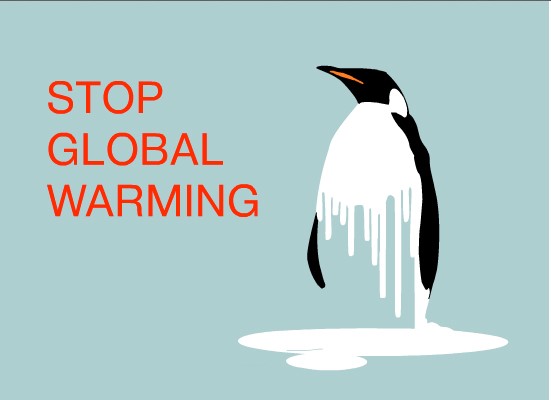Climate Change, Torah, and Our Future: A Wake Up Call for Men’s Clubs

The climate and ecology of the earth is changing due to increasing temperature. Yet for many Jews, climate change is still not seen as a “Jewish issue." The Torah in Genesis Chapter 2, G-D tells Adam "protect the Garden (Earth) if you destroy it I will not restore the garden." If after this presentation the consistent ecological change in the USA and Canada are not a concern, consider the following: A Ben Gurion University study, if we enter an era of an increase in average global temperature of more than 2 degrees Centigrade – the Negev desert will expand northward into Lebanon. Almost all of the agriculturally productive lowlands – could be gone. On top of that, Tel Aviv will be underwater due to rising sea levels. The political ramifications of +2 degrees Centigrade are; Increased tension between countries sharing water resources. The difficulty for governments to provide for their country’s needs leads to internal and external strife.
Forecasts for the Year 2100
* Mean temperature increase of between 1.6° and 1.8° Celsius. * Reduction in precipitation between 4 and 8 percent; increased rain intensity; and changes in rainfall patterns. * Increase in evapotranspiration by nearly 10 percent. * Greater seasonal temperature variability. * Mediterranean biomes expected to shift 300 to 500 km northward; if a 1.5º C warming were to occur, which could mean that Mediterranean ecosystems in Israel, the Palestinian Authority and Jordan would become more desert-like. * Some models predict as much as a 50 percent reduction in mean annual precipitation in the Jordan River Basin.
Environmental Effects of Climate Change on the Middle East:
* Severe water shortages, * More severe weather events, such as droughts and floods. * Desertification, loss of arable land. * Shifting of ecosystems, species loss. * Coral reef bleaching. * Increase in jellyfish population.
Socioeconomic Effects of Climate Change on Middle East
* Severe water shortages. * Agricultural losses. * Migration in search of resources. * Refugees from inundated lands. * Economic crisis.
Political Ramifications
* Increased tension between countries sharing water resources. * Difficulties for governments to provide for their country’s needs, leading to internal instability and a likelihood of failed states. * “Exacerbated marginal living conditions foster extremist and radical ideologies and conflicts.” The Syrian civil was started when Assad cut the water allocation of water to the northern tribes.
Security Implications
* Fewer water resources available for existing peace agreements. o More difficult to comply with Jordan River water sharing arrangement (50 mcm/pa). o More difficult to comply with Yarmouk River water-sharing arrangements (27 mcm/pa). o Palestinian future needs recognized as 70 to 80 mcm/pa. In a final agreement, Palestinian demands will be higher. * Fewer water resources available for future agreements. o Lebanon will want to share water from the Jordan River tributaries. o Syria will want to share water from the Jordan River and sources of the Sea of Galilee. * Less rainfall impacts the economy. o Palestinian Authority economy heavily dependent on rain-fed agriculture for income and employment. o Jordan Valley bread basket of Jordanian food production and rural support backbone of Kingdom’s political stability. * Rising sea levels will impact the coastal aquifer beneath Israel and the Palestinian Authority. Further increase salinity of drinking water for Gaza, further contamination of the coastal aquifer.
United States and Canada will face similar problems.
* Mean temperature increase of between 1.6° and 1.8° Celsius. * Reduction in precipitation between 4 and 8 percent; increased rain intensity; and changes in rainfall patterns. * Increase in evapotranspiration by nearly 10 percent. * Greater seasonal temperature variability. * More severe weather events, such as hurricanes, droughts and floods. * Desertification (USA south west expanding), loss of arable land. * Shifting of ecosystems, species loss. * Difficulties for governments to provide for their country’s needs, leading to internal instability. The United States is not immune.
Presented by Rabbi Fred Scherlinder Dobb
Rabbi at Adat Shalom Reconstructionist Congregation, Bethesda MD, and
Chairman, Coalition on the Environment and Jewish Life
at F JMC Convention 2017
Climate References
• The Climate Issue, National Geographic, Vol.228, No. 5, November 2015
• Wallace-wells, David, The Uninhabitable Earth, NEW YORK, PG.24, July 1—23 ,2017
• The Climate Issue, Nature Conservancy, October/ November 2016
